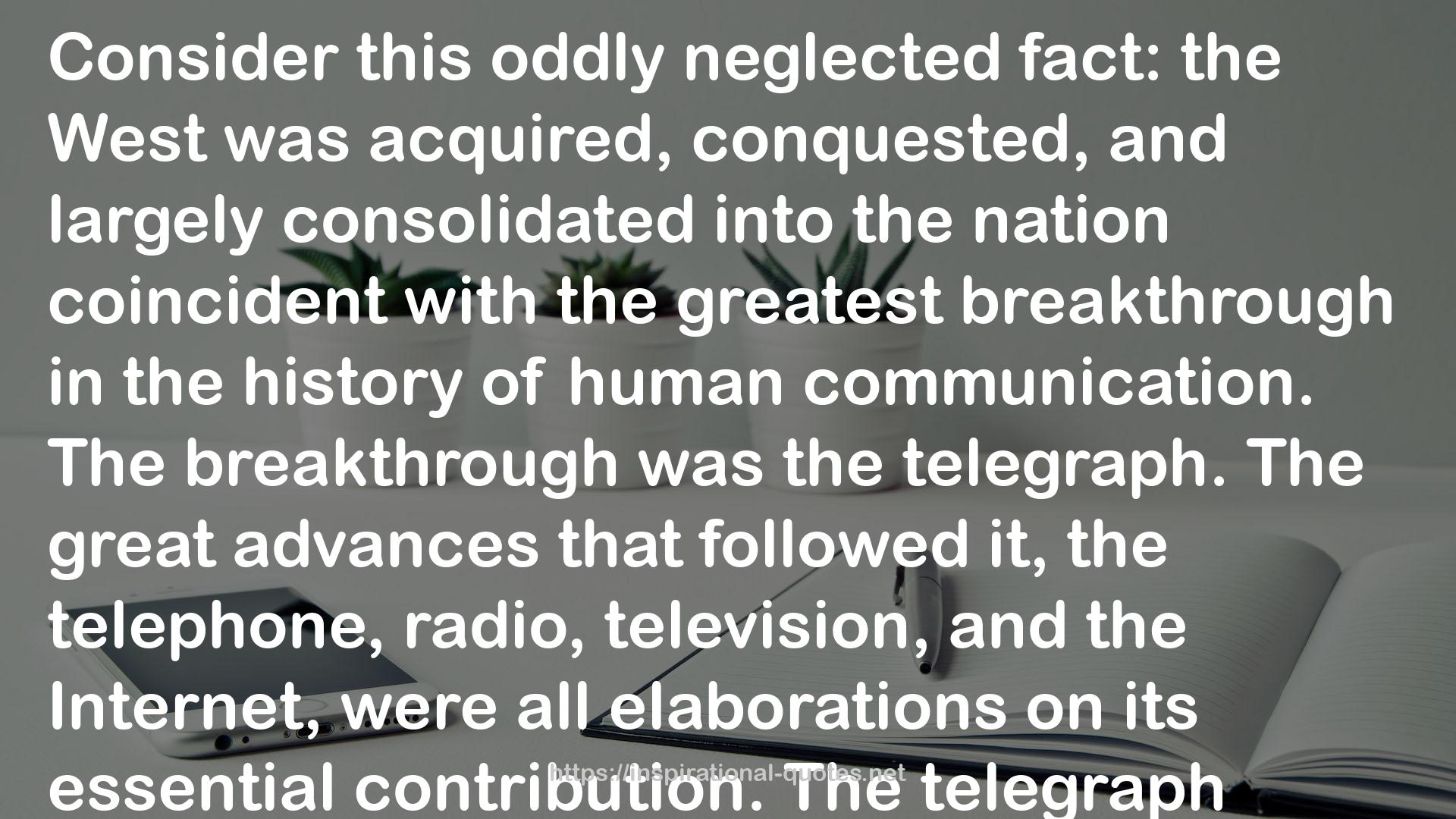" Consider this oddly neglected fact: the West was acquired, conquested, and largely consolidated into the nation coincident with the greatest breakthrough in the history of human communication. The breakthrough was the telegraph. The great advances that followed it, the telephone, radio, television, and the Internet, were all elaborations on its essential contribution. The telegraph separated the person from the message. Before it, with a few exceptions such as a sephamore and carrier pigeons, information moved only as fast as people did. By the nineteenth century, people were certainly moving a lot faster, and indeed a second revolution, that of transportation, was equally critical in creating the West, but before the telegraph a message still had to move with a person, either as a document or in somebody’s head. The telegraph liberated information. Now it could travel virtually at the speed of light. The railroad carried people and things, including letters, ten to fifteen times faster than the next most rapid form of movement. The telegraph accelerated communication more than forty million times. A single dot of Morse code traveled from Kansas City to Denver faster than the click it produced moved from the receiver to the telegrapher’s eardrum. "
― Elliott West , The Essential West: Collected Essays
